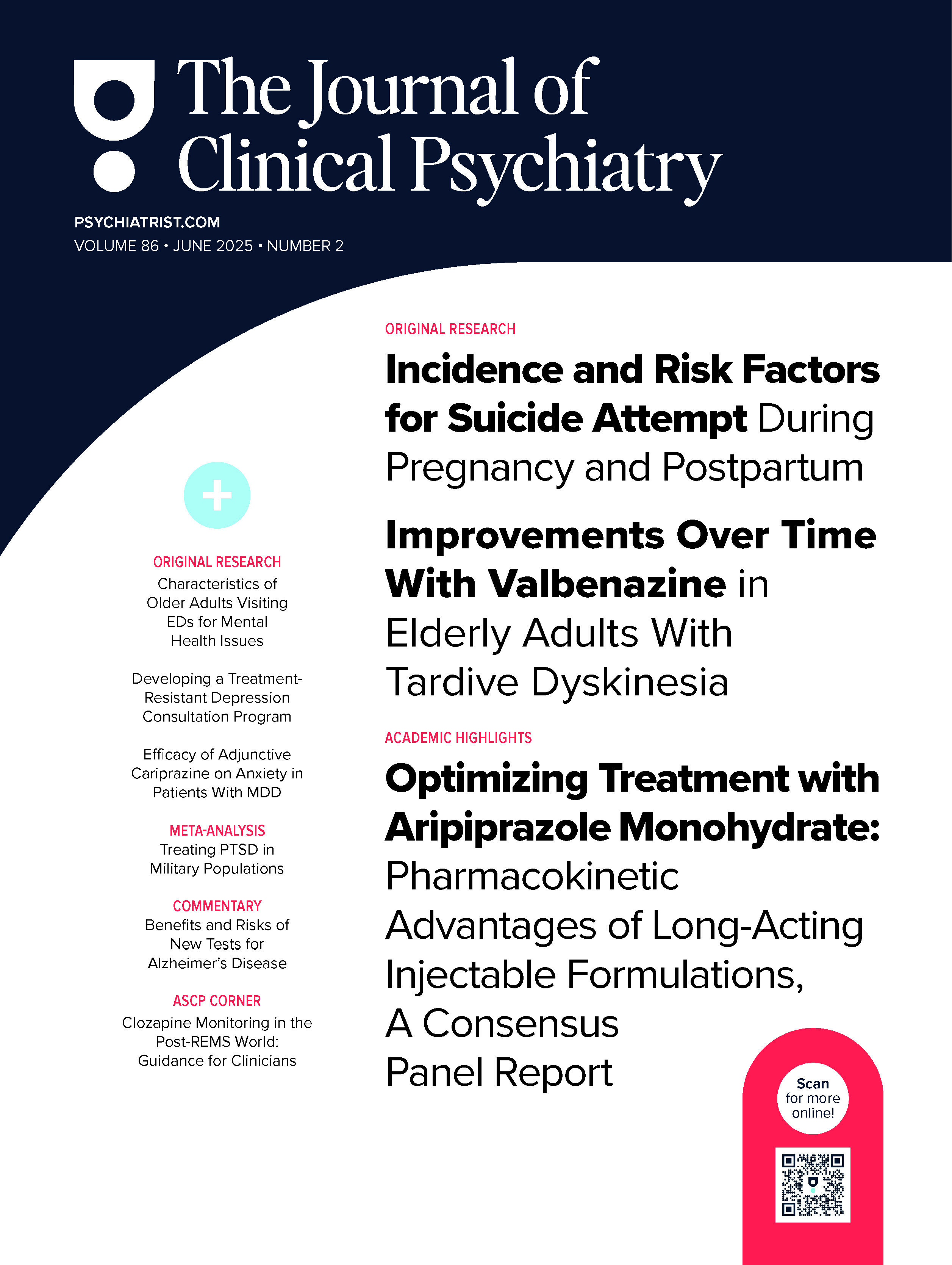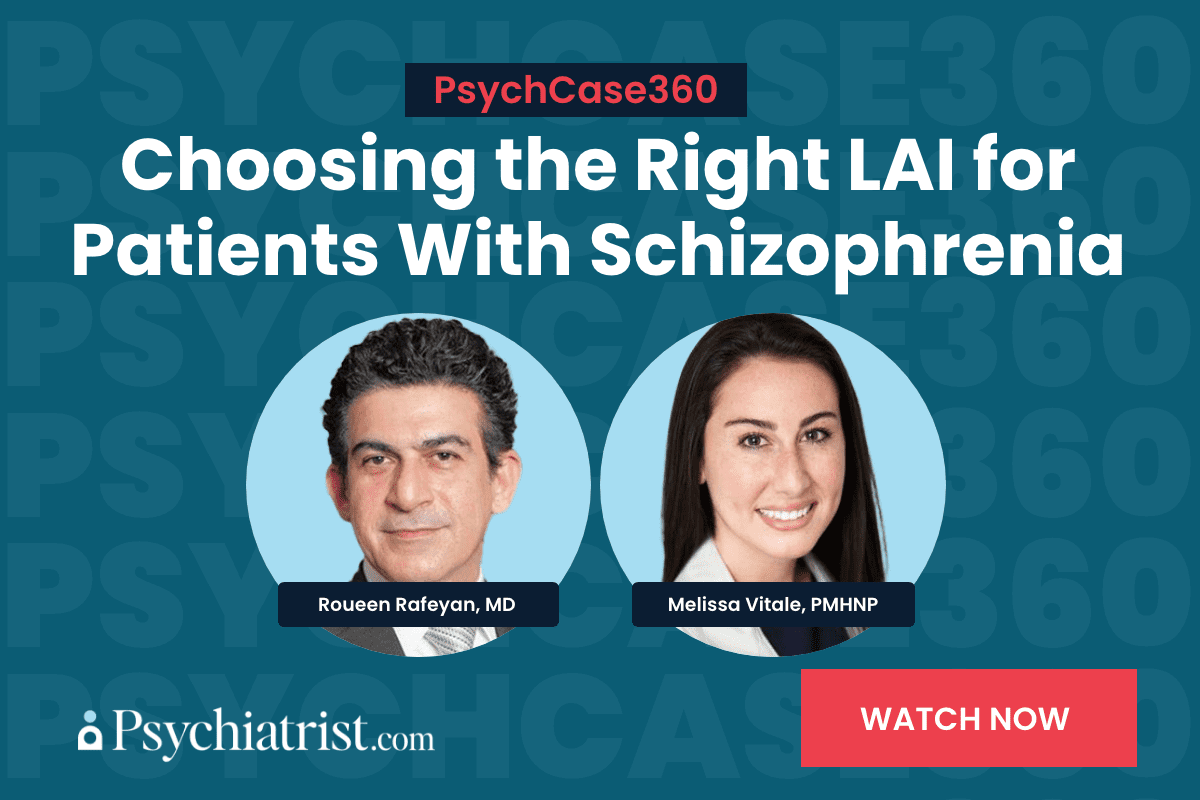Background: Since 2002, a second-generation depot antipsychotic has been available that potentially combines the advantages of depot administration and the favorable aspects of the so-called “atypical” antipsychotics. Nevertheless, long-acting injectable formulations are seldom prescribed in the treatment of schizophrenia.
Method: We surveyed 350 psychiatrists at an international conference as to their reasons for not prescribing a first- or second-generation depot antipsychotic for their patients diagnosed with schizophrenia or schizoaffective disorder.
Results: The most important factor opposing depot prescription pertaining to both classes is a presumed sufficient compliance with oral antipsychotic treatment. First-generation depots are avoided due to the threat of extrapyramidal side effects, whereas second-generation long-acting injectable drugs are considered to be associated with high treatment costs. Less than 36% of participants’ patients have ever been offered antipsychotic depot treatment.
Conclusion: Aversions to prescribing depot treatment are frequent among psychiatrists and appear to be unrelated to the antipsychotic class. The stated reasons for not prescribing depots are generally not supported by the current evidence, and further studies are urgently needed to clarify the advantages of depot treatment.
Please sign in or purchase this PDF for $40.00.




